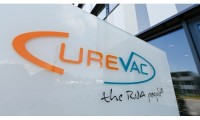-
EU Establishes €100m Funding Scheme for Projects Tackling Public Health Threats
- Source: drugdu
- 140
- July 18, 2023
-
Healthy Breast Fat may Protect Against Invasive Breast Cancer
- Source: drugdu
- 102
- July 18, 2023
-
Untangling the Amyloid-Tau Connection to Inform New Drug Development
- Source: drugdu
- 131
- July 17, 2023
-
Roche’s Ocrevus Shows Promise as a Subcutaneous Injection in Phase 3 MS Trial
- Source: drugdu
- 125
- July 17, 2023
-
CureVac Puts More Patent Claims on the Table in its COVID-19 Vaccine Suits Against Pfizer and BioNTech
- Source: drugdu
- 260
- July 17, 2023
-
A Rare but Important Cause of Chronic Sinusitis
- Source: drugdu
- 131
- July 17, 2023
-
Food insecurity tied to slightly faster memory decline
- Source: drugdu
- 165
- July 15, 2023
-
NVIDIA Doubles Down on AI Drug Discovery with $50M Recursion Investment
- Source: drugdu
- 126
- July 14, 2023
-
J&J Megadyne Unit’s Electrode Pad Recall Labeled Class I over Burn Risk
- Source: drugdu
- 129
- July 14, 2023
-
FDA Rejects Xspray’s Would-Be Rival to Bristol Myers’ Sprycel on Dosing, Manufacturing Concerns
- Source: drugdu
- 194
- July 13, 2023
your submission has already been received.
OK
Subscribe
Please enter a valid Email address!
Submit
The most relevant industry news & insight will be sent to you every two weeks.













